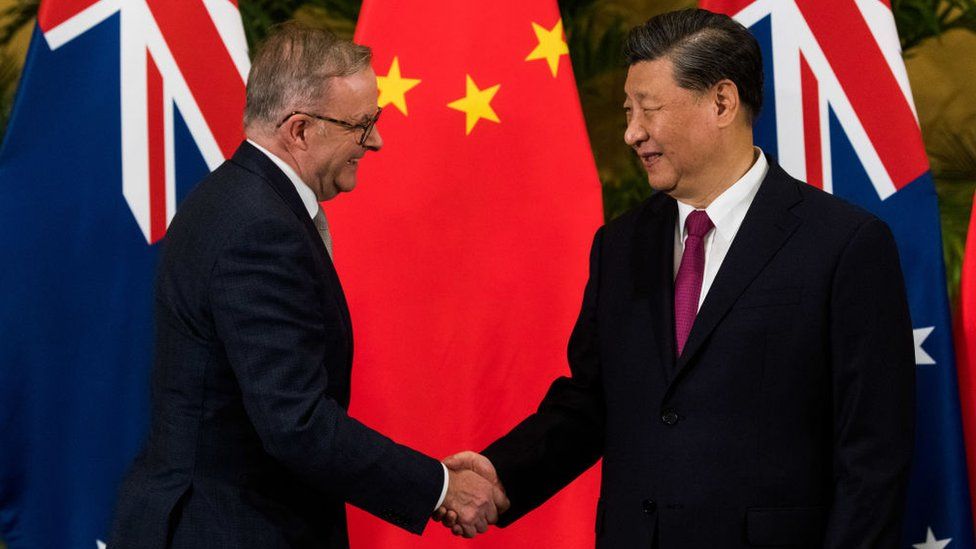-

-
-
Loading

Loading

The relationship between China and Australia has deteriorated in recent years due to accusations of human rights violations and threats to national security. However, despite their differences, the two countries cannot afford to sever their trade ties. In 2020, almost half of Australia's exports went to China, a much higher percentage compared to other countries. When Australia called for an independent inquiry into the origins of Covid-19, China responded with tariffs and restrictions on Australian goods, sending a clear message of dissatisfaction. Although China has since reversed some of these restrictions, the incident highlighted the economic interdependence between the two nations. Australia, heavily reliant on China for raw materials, has been critical of Beijing but recognizes the importance of maintaining economic links. China, on the other hand, realizes that its coercive measures are pushing Australia closer to the United States. By normalizing diplomatic contact, China aims to woo Australia away from Washington and gain support for joining the Comprehensive and Progressive Agreement for Trans-Pacific Partnership. The heightened tensions between the US and China make it imperative for China to maintain a strong economic relationship with America's allies. However, there is a risk that Australia and China could become competitors rather than collaborators on important issues such as climate change. Australia's close ties with the US align it with the American side in the superpower struggle, but siding with a country that actively harms China's economy could strain the relationship further. It remains to be seen how long this delicate balance between economic cooperation and diversification can be maintained.